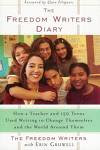The Paris Review Interviews
First up, the Paris Review is looking for submissions. Short stories, manuscripts and poetry - From new writers.
Richard Eder, writing a book review for the New York Times, "For 50 years The Paris Review has been talking to writers, in one long session, or several sessions, or recurring sessions spaced years apart. The first talk in this collection - there are to be two other volumes - is with Dorothy Parker, from 1956; the last, from 2006, is with Joan Didion. In between we get Ernest Hemingway, T. S. Eliot, Jorge Luis Borges, Rebecca West and Elizabeth Bishop, among others."
Reviewing the book review, it would have been great if the above paragraph had been the first one, but it's prefaced by a bucketload of magnificient prose just to show us that Richard Eder is a great writer himself. Sad to say, but this highlights the accusation that the NYT is a hotbed of elitist urban windbags. So here's what I propose. You go read the NYT book review. Then you come back here and read the excerpts below.
What does The Paris Review have to say for itself? "Welcome to the DNA of literature - over 50 years of literary wisdom rolled up in 300+ Writers at Work interviews, now available online—free"
What the Paris Review Interviews do have is a collection of fine wit and acerbic advice for writers, dripping with sarcasm and destroying any and all delusions of grandeur. Here's a few samples:
"I like to stay up late at night and get drunk and sleep late...The afternoon is the only time I have left..." - William Styron
"I don't believe for a moment that creativity is a neurotic symptom. On the contrary, the neurotic who succeeds as an artist has had to overcome a tremendous handicap. He creates in spite of his neurosis, not because of it." - Aldous Huxley
"Once in college I...got to going to the library and reading what I wanted instead of what was required. I got behind....And I still have bad dreams about that. It must have cut a very deep channel." - John Steinbeck
"...whoever you are, you've got to start from where you are. If you're a sailor, and only know sailor's language, well, write in it, for God's sake" - Peter Levi
"At the age of eighteen all young poets are sure they will be dead at twenty-one..." - Marguerite Young
"After my best friend jumped off the bridge, I knew that I was next. So—Paris. With forty dollars and a one-way ticket." - James Baldwin
"[There’s] the idea that by birth you are born a sinner. Why? I didn't ask to be born. Why do I have to be born on a blacklist?" - Max Frisch
I'm really sorry, but I have to cut in here. I believe that I have made my point. That since you're trying to introduce great writers to your readers, there are no better words than those of the writers. So, without making a horse's ass out of myself, I end this post. These are the books - The best of the Paris Review in hardcover and paperback. And you can get it all for free here - The Paris Review.
Update: Uhh...At the risk of screwing up this post, I'd like to post this link to an interview with Philip Gourevitch, editor of the Paris Review.



